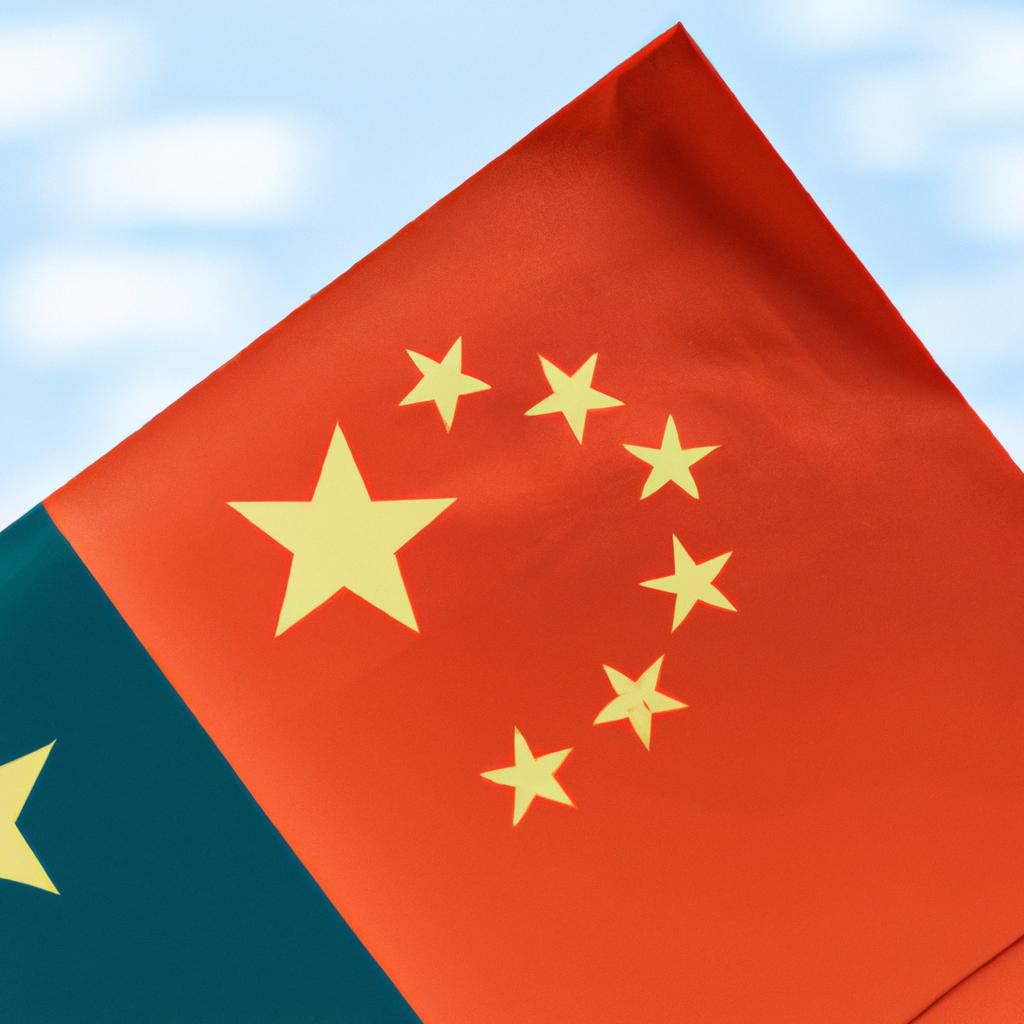Senate Stalls TikTok Bill Amid Alarming China Concerns – How Long Will the Wait Be?
The Current Status of the TikTok Bill
The U.S. Senate has stalled on passing the TikTok bill, primarily due to growing concerns about the potential for Chinese government interference and data privacy issues. This raises the critical question: “How long will the wait be?” In this article, we’ll delve into why the bill is being delayed, the implications for TikTok users, and what future actions may be anticipated.
Why the Delay? Key Reasons the Senate Has Stalled the TikTok Bill
National Security Concerns
One of the primary reasons the Senate has placed a hold on the TikTok bill is national security concerns. Lawmakers are worried that TikTok, owned by Chinese company ByteDance, could be compelled to share user data with the Chinese government. Given the sensitive nature of user information, this has become a sticking point in discussions.
Data Privacy Issues
In addition to national security, there are significant data privacy issues. Lawmakers are concerned that the app could collect data beyond what is necessary for its operation, including information about users’ locations, contacts, and even browser history. This surveillance capability is alarming to many.
Political Tensions
The political tensions between the U.S. and China have undoubtedly affected the proceedings. With issues like trade wars and cybersecurity threats already straining relations, the TikTok debate has become another battleground in a complex geopolitical struggle.
Implications for TikTok Users
Understanding the broader implications for TikTok users is essential. Here are some key points to consider:
- Uncertainty Over App’s Future: The stalled bill creates uncertainty over whether TikTok will continue to operate in the U.S.
- Data Privacy Risks: Users should be aware of the potential data privacy risks associated with continued use of the app.
- Government Intervention: Depending on the bill’s outcome, there could be increased government intervention in how the app operates.
How Long Will the Wait Be? Predicting Future Movements
Expert Opinions
Experts offer varying opinions on how long it might take for the Senate to reach a decision. Some believe the process could take months, if not longer, due to the complexity of the issues at hand.
Past Case Studies
Looking at previous legislative actions on tech companies may offer some insight. For example, the scrutiny faced by Chinese telecom company Huawei took years to resolve fully, and even now, it remains partially unresolved.
Best Case and Worst Case Scenarios
| Scenario | Time Frame | Possible Outcomes |
|---|---|---|
| Best Case | 3-6 Months | Resolution of security concerns, TikTok continues operation under new regulations. |
| Moderate Case | 6-12 Months | Extended debates, interim measures to secure data. |
| Worst Case | 1 Year+ | Long-term stalling, possible app ban or severe limitations imposed. |
Practical Tips for TikTok Users Amid Uncertainty
Data Privacy Measures
- Review Permissions: Regularly review the app’s permissions and disable any that are not essential.
- Use a VPN: Consider using a Virtual Private Network (VPN) to enhance your online privacy.
- Stay Updated: Keep abreast of any news related to the bill and potential security updates from TikTok.
Alternatives to TikTok
If you’re concerned about potential risks, there are several alternative apps to consider:
- Instagram Reels: Offers similar short video features within the Instagram platform.
- YouTube Shorts: Another platform for short-form videos with a massive user base.
- Triller: Often cited as a viable alternative to TikTok due to its similar features.
User Experience – What Are People Saying?
Firsthand Accounts
Jake M., Content Creator: “The uncertainty surrounding TikTok has made me rethink sharing personal moments on the platform. I’m exploring other venues to ensure my audience remains engaged while safeguarding my privacy.”
Susan T., Digital Marketer: “I’ve had to advise clients to diversify their social media strategy given the ongoing TikTok concerns. It’s better to be safe and not put all your eggs in one basket.”
Case Studies
Examining case studies from other countries can also offer valuable learnings. For instance, India’s ban on TikTok led to a surge in the popularity of local alternatives such as Chingari and Mitron within a few months.
Future Considerations and Final Thoughts
While the Senate deliberates on the TikTok bill, users and stakeholders must remain vigilant. By staying informed and adopting proactive measures, one can mitigate the risks associated with the ongoing geopolitical and regulatory uncertainties. For now, it’s a waiting game that could have significant implications for the future of social media and digital privacy.
The potential ban of TikTok in the United States is encountering significant hurdles in the Senate, with bipartisan concerns about the app’s Chinese ownership. Despite increasing worries, the bill is not anticipated to pass anytime soon.
Senate Stalemate on TikTok Ban Amid Rising Concerns
Senate Challenges
Lawmakers from both parties are voicing concerns about TikTok due to its Chinese ownership, citing potential data privacy issues and national security threats. Despite these apprehensions, the proposed legislation to ban TikTok is facing substantial resistance and is unlikely to secure enough support in the Senate.
Escalating National Security Fears
The debate over TikTok’s connections to China has intensified as more details emerge about the app’s data collection practices. Legislators are increasingly alarmed by the possibility of the Chinese government accessing sensitive information through TikTok, prompting calls for stricter regulations or an outright ban on the app in the U.S.
Consequences for Users and Businesses
A potential TikTok ban would have far-reaching effects on both users and businesses. Millions of Americans use the app for entertainment and social networking, while numerous businesses depend on TikTok for marketing and advertising. A ban would disrupt these activities and could have economic repercussions for the companies involved.
Future Outlook
The future of TikTok in the U.S. remains uncertain, with the debate over its Chinese ties continuing to be a contentious issue. Lawmakers must carefully balance the potential national security risks against the impact of a ban on users and businesses. As the discussion progresses, staying informed about the latest developments is crucial to prepare for any changes that may arise.

Senate Delays TikTok Legislation Despite Urgent Warnings About China
The Senate is experiencing significant delays in passing a critical bill concerning TikTok, the widely-used social media platform. Despite urgent warnings about the Chinese government’s influence on the app and its potential national security risks, lawmakers have yet to reach a consensus on the next steps.
Background Information
Concerns about TikTok and its ties to China are not new. For months, experts and lawmakers have raised alarms about the app’s data privacy practices and the potential for the Chinese government to access sensitive information through it. These concerns have only grown as TikTok’s user base has expanded rapidly, particularly among younger users.
In response to these concerns, lawmakers introduced a bill aimed at addressing the national security risks posed by TikTok and other Chinese-owned apps. The bill would grant the U.S. government more oversight and control over these apps, potentially even banning them if necessary.
Current Status
Despite the urgency of the situation, the Senate has been unable to pass the bill. Partisan disagreements and lobbying efforts from tech companies have contributed to the delays, leaving the future of the legislation uncertain. Many fear that these delays could allow TikTok and other Chinese-owned apps to continue operating unchecked, posing a threat to national security.
With the Senate at an impasse, it remains unclear how long it may take for the bill to be approved. Some experts believe that it could be months before lawmakers reach a consensus and move the legislation forward. In the meantime, TikTok and other Chinese-owned apps will continue to operate under existing regulations, raising concerns about the safety of user data and the potential for foreign influence.
Practical Advice and Benefits
- Stay updated on the latest developments in the TikTok debate to understand the potential implications for national security.
- Exercise caution when using TikTok and other Chinese-owned apps, especially when sharing sensitive information.
- Support lawmakers advocating for stronger regulations on apps with ties to foreign governments to protect user privacy and national security.
Case Studies
Recent high-profile cases of data breaches and security vulnerabilities linked to Chinese-owned apps further highlight the need for stronger regulations.
| App | Issue |
|---|---|
| TikTok | Data privacy concerns and potential national security risks. |
| Susceptibility to government surveillance and censorship. |
User Experiences
Users of TikTok and other Chinese-owned apps have reported instances of their data being compromised or misused, underscoring the need for stronger protections and oversight.
the Senate’s delays in passing the TikTok bill despite urgent warnings about China raise serious concerns about national security and data privacy. It may take months for lawmakers to resolve their differences and move the legislation forward, leaving users and experts alike on edge about the potential risks posed by these apps. Stay informed, exercise caution, and support efforts to strengthen regulations to protect user privacy and national security.
The post Senate Delays TikTok Bill Despite Urgent Warnings About China – Will it Take Months appeared first on lawyer.bet.




